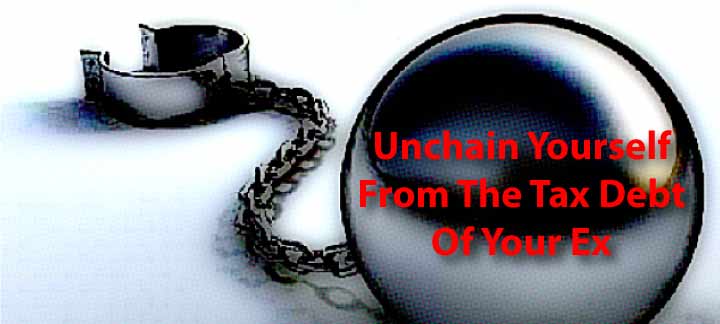Innocent Spouse Relief: Unchain From The Tax Debt Of Your Ex
Many spouses are surprised to find that they are responsible for the tax debts of their ex, despite never being aware of the original income. However, if you find yourself in this situation you may be able to seek innocent spousal relief and separate yourself from the debt. The question is, do you qualify?
A spouse may be entitled to relief from joint and several liability for an understatement of tax attributable to an erroneous item of the other spouse.
Joint and several liability for taxes owed is due to the Joint Return that is filed together by both spouses. In many instances, one spouse assumes responsibility for filing the return of the couple. In some cases, the filing spouse knowingly and willfully understates the couple’s tax due. In such cases, where the non-filing (“innocent”) spouse is unaware of the misstatements, he or she may have relief available as to the tax owed due to the misstatement on the return if certain conditions are met. Generally, both spouses are responsible for the accuracy of the joint return and payment of the tax liability regardless of which spouse completed the return. Therefore, both spouses are jointly liable, and individually liable for the entire amount of the tax due, unless one spouse is able to qualify for separation of joint and several liability.
Innocent spouse must not have known or had reason to know of the understatement.
Under IRS guidelines, in order to qualify for innocent spouse relief, if taxpayer actually knew of the understatement or if a reasonable person in similar circumstances would have known of the understatement, the IRS will not agree to allow innocent spouse relief. The IRS will consider all facts and circumstances in determining whether a taxpayer had reason to know of the understatement, and this is the opportunity for a good tax lawyer to make your case. The taxpayer will also have to prove that considering the facts and circumstances, it would be unfair to hold the taxpayer liable for the understatement of tax. These facts and circumstances are the responsibility of the innocent spouse to prove; they can be identified and explained to the IRS with the help of a tax attorney.
What if I’m now divorced or legally separated from my spouse?
Both taxpayers are jointly and individually liable for the tax, interest or penalties due on the joint return even if they later divorce. IRM 4.11.34.2.6. This means that one spouse, even the innocent spouse, can be held responsible for the payment of all the tax due from a previous marriage – even if the other spouse earned all of the income. However, a taxpayer can request Relief by Separation of Liability. In this case, the understatement of tax is separated between both spouses in the amount for which each spouse is responsible. In addition to being divorced or separated, the taxpayer and his/her spouse cannot have been members of the same household at any time during the 12-month period ending on the date a taxpayer files the request.
What if I can’t get innocent spouse relief under the general relief or separate liability elections?
Equitable relief may be considered if the IRS has determined that the innocent spouse does not qualify for innocent spouse relief or relief by separation of liability. Equitable relief adds another type of relief in addition to an understatement of tax: underpayment of tax. There are many conditions that must be satisfied in order to be considered for equitable relief. If all of the conditions are met and the taxpayer is eligible, the IRS will then consider the relevant factors in their determination. The conditions and factors must be proven by the innocent spouse.
How can a tax attorney help assert Innocent Spouse Relief as a Defense?
Innocent Spouse Relief is only available under certain circumstances – not every innocent spouse will qualify and those who do still have the hurdle of proving their case and navigating the complex procedures of the system. Because the burden of proof is on the innocent spouse, it is paramount that an experienced tax attorney assists in the process. Where a petition for Innocent Spouse Relief fails, there are other avenues that a tax attorney can take such as an appeal, equitable relief, and Tax Court Review.
The Tax Lawyer - William D Hartsock offers a free consultation with the benefits of attorney client privilege wherein you will be able to weigh the basic facts of the case and help you understand your options. If you feel that you may have a good case for innocent spouse relief, contact Mr. Hartsock today.



Comments (0)